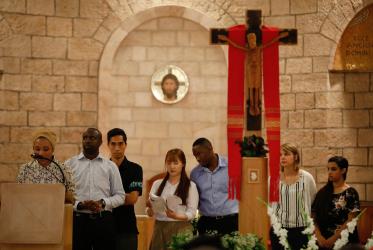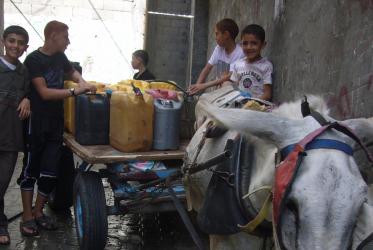Displaying 41 - 60 of 82
Many ready to observe World Week of Peace in Palestine and Israel
15 September 2017
WCC gravely concerned over Israel’s travel ban
09 March 2017
From Bethlehem, WCC general secretary: “Together we are stronger”
08 December 2016
WCC general secretary reflects on peace in Palestine and Israel
20 September 2016
Winners of WCC photo contest announced
09 May 2016
Tveit highlights unjust water resources for Palestinians
10 February 2016
Seven Weeks for Water 2016 to focus on Holy Land
05 February 2016








